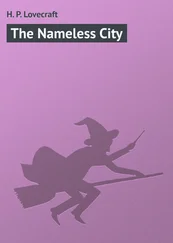Maurus Jokai - The Nameless Castle
Здесь есть возможность читать онлайн «Maurus Jokai - The Nameless Castle» весь текст электронной книги совершенно бесплатно (целиком полную версию без сокращений). В некоторых случаях можно слушать аудио, скачать через торрент в формате fb2 и присутствует краткое содержание. Город: New York, Год выпуска: 1898, Издательство: Doubleday, Page & Company, Жанр: Историческая проза, на английском языке. Описание произведения, (предисловие) а так же отзывы посетителей доступны на портале библиотеки ЛибКат.
- Название:The Nameless Castle
- Автор:
- Издательство:Doubleday, Page & Company
- Жанр:
- Год:1898
- Город:New York
- ISBN:нет данных
- Рейтинг книги:4 / 5. Голосов: 1
-
Избранное:Добавить в избранное
- Отзывы:
-
Ваша оценка:
- 80
- 1
- 2
- 3
- 4
- 5
The Nameless Castle: краткое содержание, описание и аннотация
Предлагаем к чтению аннотацию, описание, краткое содержание или предисловие (зависит от того, что написал сам автор книги «The Nameless Castle»). Если вы не нашли необходимую информацию о книге — напишите в комментариях, мы постараемся отыскать её.
The Nameless Castle — читать онлайн бесплатно полную книгу (весь текст) целиком
Ниже представлен текст книги, разбитый по страницам. Система сохранения места последней прочитанной страницы, позволяет с удобством читать онлайн бесплатно книгу «The Nameless Castle», без необходимости каждый раз заново искать на чём Вы остановились. Поставьте закладку, и сможете в любой момент перейти на страницу, на которой закончили чтение.
Интервал:
Закладка:
“And where am I to take her?”
“You will have a carriage with four swift horses at the park gate nearest the cemetery, and must drive with the maid to Raab.—Don’t stop on any account until you get there. In Raab you will inquire for the house of Dr. Tromfszky, who is our army physician. He will have been advised of your coming, and will take charge of the maid. Then you will return to me here, and report what you have done. Here is a passport; if you are stopped at our lines show it to the guard. And here is a purse; don’t spare the contents. And do not speak to a living soul about your mission.”
“Your orders shall be obeyed,” responded Satan Laczi, as he turned to leave the tent.
Vavel did not go back to the officers’ tent. He went out into the night, and stood with folded arms, gazing with unseeing eyes into the darkness.
PART VIII
KATHARINA OR THEMIRE?
CHAPTER I
It was a delightful May evening. Marie was practising diligently her piano lesson, in order to surprise Ludwig with her progress when he should return from the war. That he would return Marie was quite certain.
Katharina had gone into the park for a solitary promenade. She had complained all day of a headache—a headache that began to trouble her after she had read the letter she had received that morning from the Marquis de Fervlans. She held the letter in her hand now, and read it again for the hundredth time.
Yes, she had accomplished her mission successfully; the fugitive maid and the important documents were in her possession; and yet her trembling hand refused to grasp the promised reward. A fortune awaited her for the comedy she had played with such success—a comedy in which she had acted the part of the charitable lady of the manor.
And what if there had been something of reality in the farce? Suppose her heart had learned to thrill with emotions hitherto unknown to it? Suppose it had learned to know the true meaning of gratitude—of love?
But five millions of francs!
If she were alone in the world! But there was Amélie, her dear little daughter, who was now almost fifteen years old—almost a young lady. Should she leave Amélie in her present disagreeable position, a member of “Cythera’s Brigade,” or should she send for her, and confess to the man whose respect she desired to retain that the child was her daughter, and that she was a widow? Could she tell him what she had once been? Would he continue to respect, to love her?
Five millions of francs!
It was an enormous sum, and would become hers if she should order the carriage, and, taking Marie and the casket with her, drive leisurely along the highway until stopped by a troop of soldiers that would suddenly surround the carriage. A politely smiling face would then appear at the window of the carriage, and a courteous voice would say:
“Don’t be alarmed, ladies. You are with friends. We are Frenchmen.”
But to renounce the love and respect so hardly won! Ah, how very dearly she loved the man to whom she had betrothed herself in jest! In jest? No, no; it was not a jest!
But five millions of francs!
Would all the millions in the world buy one faithful heart?
Katharina was suffering for her transgressions. She had intended to play with the heart of another, and had lost her own. Besides, she could not bear to think of betraying the innocent girl who loved and trusted her and called her “mother.”
But time pressed. Three times already Jocrisse had interrupted her meditations to inquire if her answer to the marquis’s letter was ready. And still she struggled with herself. When Jocrisse appeared again, she said to him:
“My letter is of such importance that I cannot think of intrusting it to the hands of a stranger. You yourself, Jocrisse, must take it to the marquis.”
“I am ready to depart at once, madame.”
Katharina wrote her reply, sealed it carefully, and gave it to Jocrisse, who set out at once on his errand.
In the letter he carried were but three words:
“ Io non posso ” (“I cannot”).
Katharina locked herself in the pavilion in the park, and gave orders to the servants not to admit any visitors, whether acquaintances or strangers.
An hour or more had passed when she heard a timid knock at the door, and an apologetic voice said:
“A strange gentleman is here. I told him your ladyship would see no one; then he bade me give your ladyship this, which he said he had brought from Paris.”
Katharina opened the door wide enough to receive the object. It was a small ivory locket, yellow with age. Katharina’s hand shook violently as she pressed the spring to open it. She cast a hasty glance at the miniature,—the likeness of her daughter Amélie,—then said in a faltering voice: “You may tell the gentleman I will see him.”
In a few minutes the visitor entered the pavilion.
“M. Cambray!” exclaimed the baroness.
“Yes, madame; I am Cambray, with my other name, Marquis Richard d’Avoncourt. I am he to whom you once said: ‘I shall be grateful to you so long as I live.’ ”
“How—how came you here?” gasped the baroness.
“I managed to escape from my prison at Ham, went to Paris, where I saw your daughter—”
“You saw my daughter?” interrupted the baroness, excitedly. “Did you speak to her? Oh, tell me—tell me what you know about her.”
“You shall hear all directly, madame. I told the countess that I intended to search for her mother, and asked if she had any message to send to her.”
“Did she send a letter with you?” again interrupted the baroness.
“She did, madame. But before I give it to you I should like to have a shovel of hot coals and a bit of camphor.”
“But why—why?” demanded the baroness.
“I will tell you. Do you know what Napoleon brought home with him from the bloody battle of Eilau?”
“I have not heard.”
“The ‘influenza.’ I dare say you have never even heard the name; but you will very soon hear it often enough! It is a pestilential disease that is rather harmless where it originated, but when it takes hold of a strange region it becomes a deadly pestilence—as in Paris, where a special hospital has been established for patients with the disease. It was in this hospital I found your daughter as a nurse.”
“ Jesu Maria! ” shrieked the mother, in a tone of agony. “A nurse in that pest-house?”
“Yes,” nodded the marquis. Then he took from his pocket a letter, and added: “She wrote this to you from there.”
The baroness eagerly extended her hand to take the letter.
“Would it not be better to fumigate it first?” said the marquis.
“No, no; I am not afraid! Give it to me, I beg of you!”
She caught the letter from his hand, tore it open, and read:
“DEAR LITTLE MAMA: What sort of a life are you leading out yonder in that strange land? Do you never get weary or feel bored? Have you anything to amuse you? I have become satiated with my life—lying, cheating, deceiving every day in order to live! While I was a little girl I was proud of the praises heaped upon me for my cleverness. But a day came when everything disgusted me. It is an infamous trade, this of ours, little mama, and I have given it up. I have begun to lead a different life—one with which I am satisfied; and if you will take the advice of one who wishes you well, you, too, will quit the old ways. You can embroider beautifully and play the piano like a master. You could earn a livelihood giving lessons in either. Do not trouble any further about me, for I can take care of myself. If only you knew how much happier I am now, you would rejoice, I know! Let me beg you to become honest and truthful, and think often of your old friend and little daughter,
Читать дальшеИнтервал:
Закладка:
Похожие книги на «The Nameless Castle»
Представляем Вашему вниманию похожие книги на «The Nameless Castle» списком для выбора. Мы отобрали схожую по названию и смыслу литературу в надежде предоставить читателям больше вариантов отыскать новые, интересные, ещё непрочитанные произведения.
Обсуждение, отзывы о книге «The Nameless Castle» и просто собственные мнения читателей. Оставьте ваши комментарии, напишите, что Вы думаете о произведении, его смысле или главных героях. Укажите что конкретно понравилось, а что нет, и почему Вы так считаете.












